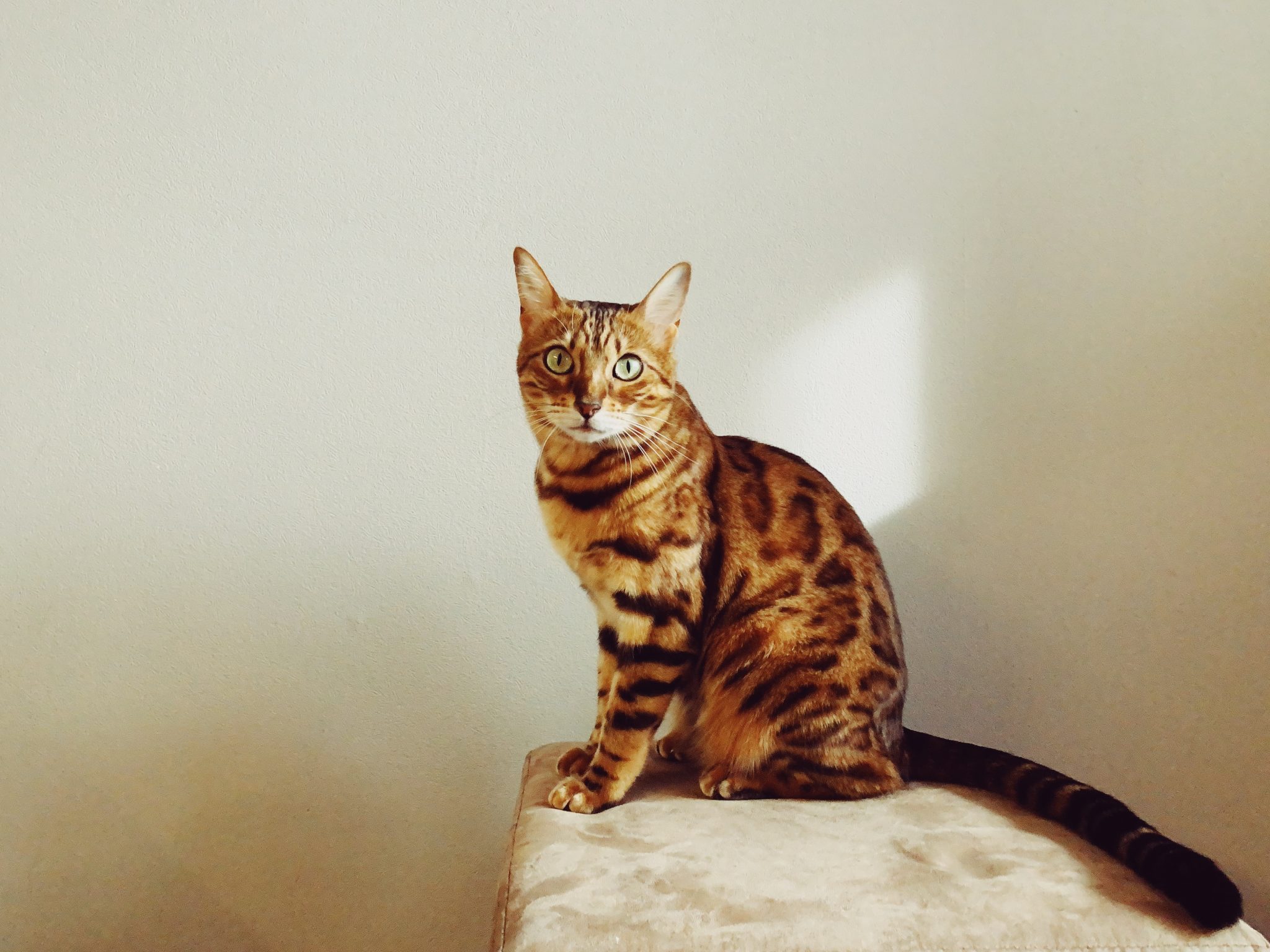Cats & Kittens For Sale
Cats and kittens have long held a special place in the hearts of animal lovers worldwide. Their irresistible charm, independent nature, and low-maintenance lifestyle make them ideal pets for countless households. The popularity of felines as companions has only grown over the years, with the advent of social media and the internet further cementing their status as beloved family members.

Filter 
Search
Breed
Location
Price Range
Search 493 cats across Australia
Cats & Kittens For Sale
Cats and kittens have long held a special place in the hearts of animal lovers worldwide. Their irresistible charm, independent nature, and low-maintenance lifestyle make them ideal pets for countless households.
 Questions To Ask A Breeder
Questions To Ask A Breeder
- Are you are registered breeder?
- Can we meet in person?
- Have they been socialised?

Breed Characteristics
Grooming
Coming soon.
Exercise
Coming soon.
Size Range
Coming soon.
Cats are known for their independent nature, making them ideal pets for busy individuals or families. Unlike dogs, which typically require more attention and exercise, cats are content with self-grooming and minimal interaction. They are also naturally litter-trained, making housebreaking a simpler process. These qualities have contributed to the popularity of cats, as they are able to fit seamlessly into various lifestyles and home environments.
If you’re considering buying or adopting a cat for sale online, you might be wondering what the most popular breeds are. The following chart shows 12 of the most popular cats for sale in Australia.
Some of Australia's Most Popular Cat Breeds
- 1. Ragdoll
- 2. Persian
- 3. Domestic Shorthair
- 4. British Blue
- 5. Birman
- 6. British Shorthair
- 7. Maine Coon Cat
- 8. Siamese Cat
- 9. Burmese Cat
- 10. Domestic Medium Hair
- 11. Bengal
- 12. Domestic Long Hair
Common Questions to Ask your Cat Breeder
Now that you have an idea of what type of breed you want to get, it is time to find yourself a responsible breeder. This way, you end up with a cat that is robust, has an excellent temperament, and is properly socialised.
Asking the following questions will help you assess the breeder's commitment to responsible breeding practices, the health of their cats, and their dedication to the well-being of the kittens. This information will enable you to make an informed decision about purchasing a cat from a particular breeder and ensure that you are supporting ethical breeding practices.
Bear in mind that even when you have found yourself a breeder, they may not be the right one for you. To find out if you are doing business with a trustworthy seller, you need to ask them a lot of questions. Here are six important ones to ask:
By meeting the kitten's parents, you can get an idea of the genetic traits and potential health issues that may be passed down to the offspring. Observing the parents can provide insight into the kitten's potential size, coat type, and temperament, which are all influenced by genetics. This knowledge can help you prepare for the care and potential veterinary costs associated with specific breed-related health concerns. A responsible breeder should be able to show you at least the mother of your prospective kitten.
Meeting the kitten's parents and visiting the breeder's facilities can give you a sense of whether the breeder is following ethical breeding practices. Responsible breeders prioritise the health and well-being of their animals and provide a clean, safe, and stimulating environment for the parent cats and kittens. By meeting the parents, you can assess the conditions they are living in, ensuring that you are not supporting unethical breeding or contributing to the overpopulation of cats.
During the first weeks of life, kittens learn essential social skills and behaviours from their mother and siblings. They learn to play, communicate, groom, and establish boundaries within their social group. These early interactions contribute significantly to their social development. Ethical breeders can help encourage these interactions as well as expose kittens to more stimuli.
Introducing kittens to gentle and positive human interaction from an early age is vital in helping them become comfortable around people. Regular handling, petting, and speaking softly to kittens will help them associate humans with positive experiences. Gradually introducing kittens to different sights, sounds, and smells will help them become more adaptable and less fearful of new experiences.
Some cats, whether purebred or crossbreed, are predisposed to genetic defects. This is why you should ask your breeder if the parents of the cat you wish to adopt have been tested for all health issues common to their breed.
When breeders test their breeding cats for genetic conditions, they can provide potential buyers with accurate information about the health and genetic background of the kittens. This transparency enables buyers to make informed decisions about adopting a kitten and preparing for any potential health issues they may face.
Once you have taken your new cat home, do not introduce it to an entirely different diet right away. This can take a toll on its health. It is recommended that you continue feeding it what it has been used to eating for at least a couple more days.
When introducing new foods to your kitten, do it slowly. You can start by mixing a little of the new kibble with the old kibble, increasing the ratio over a couple of days until they are fully transitioned over to their new food.
Asking whether a kitten is up-to-date on its vaccinations before buying it is crucial for several reasons, all of which contribute to the health and well-being of the kitten, other pets in your household, and even yourself.
Preventative healthcare, including vaccinations, is typically less expensive than treating illnesses and their complications. By ensuring a kitten has received its vaccinations, you can potentially avoid costly veterinary bills associated with treating diseases that could have been prevented.
Although not mandatory, a health guarantee is customary in cat breeding and buying. Do not worry if your seller does not offer one, as this doesn’t mean they are untrustworthy or that their kitten for sale is not well-bred.
What you can do is ask your breeder the following questions:
- Can I give the cat back if I can no longer care for it due to health reasons, old age, or any other unfortunate circumstance? If not, can you help me find another suitable home for it?
- Can I return the cat if it is found to have a severe illness a few weeks after I bring it home?
- If I cannot return the cat even if it is found to be sick, will you fully refund me?
- If you do not offer a refund, what will you do to compensate for the inconvenience?
Aside from a health guarantee, ask your breeder for a contract that defines the responsibilities of both parties. This is not only for both the buyer and seller’s peace of mind but also for their protection.
Safe
Responsible
Accountable
Find your next pet with PetsForHomes - Australia’s number one free website to find a pet for sale or adoption.
Trusted & Viewed by over 1 Million Australians





